Resources
The loss of a loved one is one of the most difficult situations to face in life. This can be especially trying if you are in charge of making the pet funeral arrangements. Our family here at Cremations.com would like to share with your family some points from experienced cremations operators who will help you through such a troubling time.
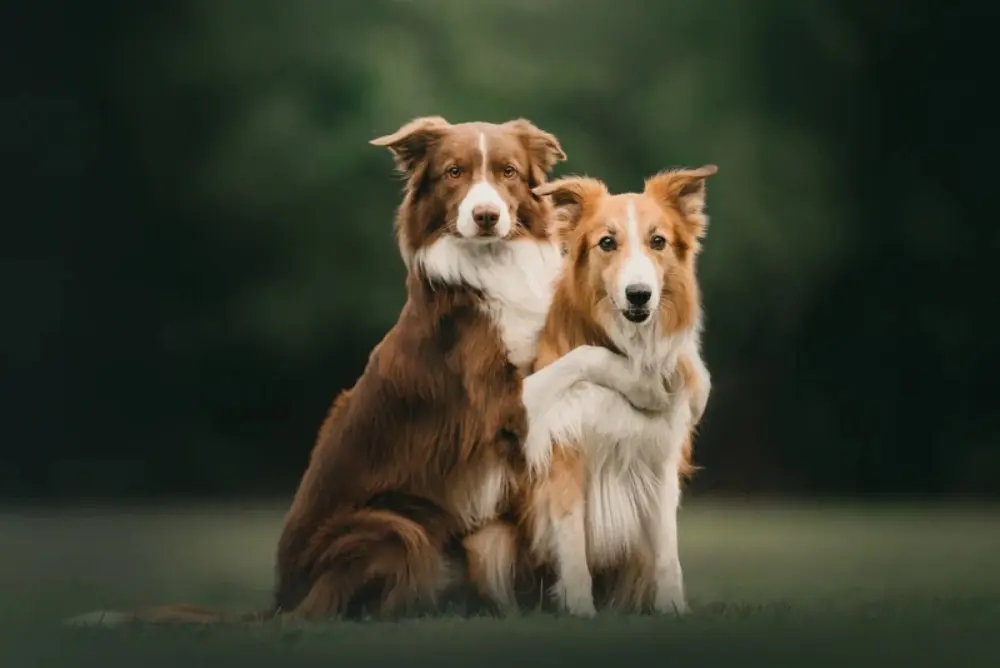
What Happens to Bonded Dogs When One Dies?
- August 12, 2022
- Celebrations of Life
Many times, you will have bonded dogs, and they are inseparable. That’s amazing, and it adds a unique, exciting approach to life. But unfortunately, at some point, one of them will eventually die, either due to health issues or old age. It’s a clever idea to create an obituary for your lost dog when something like that happens. Yet the question is, what can you do for the remaining dog when one of the bonded dogs passes away? Let’s discover!
Dogs act differently while grieving
Just like humans, dogs are grieving too. They have their own way of grieving, but they grieve, which you need to consider here. While we can assume how dogs grieve, there’s no real way to know how they feel. What we can do is evaluate the things we see. And yes, for the most part, a dog will have behavioral changes. Those appear due to the dog not feeling the company of the other dog.
That leads to social withdrawal most of the time, which is what humans do in a situation like that. It’s imperative to address the situation the best way we can, and in doing so, we will be happy with the outcome. If not, the dog will be there sad, affecting their diet, health, and a variety of other things. That’s why you want to tackle all this stuff because it will help immensely in the long run.
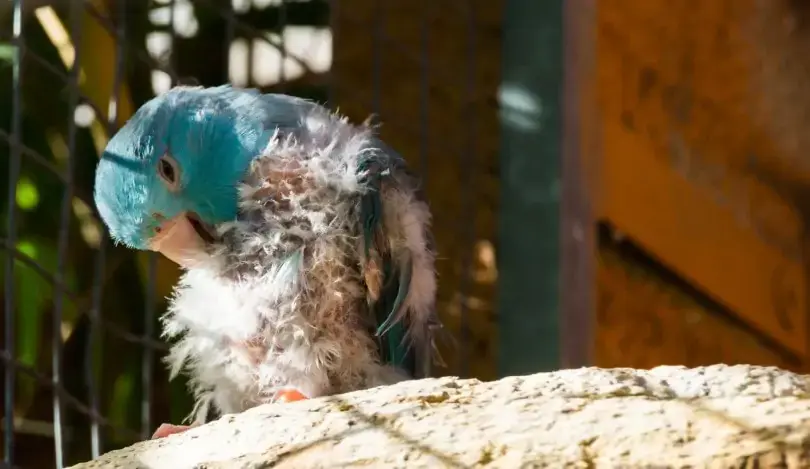
How Do You Know If It’s Time to Put Your Bird Down?
- September 13, 2021
- Planning
Unfortunately, there comes a time when we must say goodbye to our beloved pets. As much as we wish they could live forever, we need to prepare ourselves for when their time comes. There are certain signs that can indicate that our pet birds are reaching the end or that they’re in pain and require immediate medical attention. While some pet birds are able to let out a few words here and there, sadly, none of our feathery friends can communicate to us whether they are in pain or not.
As if it wasn’t already hard enough that our beloved pets can’t communicate their feelings or pain to us, most birds have the tendency to hide their pain from their owners. This is due to their particular nature and their survival instincts that make it even harder for us to know if their time is close. This is why it’s so important for pet owners to stay alert and be aware of any signs or symptoms that could indicate their small friend is in pain. By recognizing any of these signs, you could either potentially save your bird friend’s life or at least help minimize their suffering.
Continue reading as we go over the common signs and signals that your beloved bird companion could be reaching the end. We understand that while this is not an easy read, it could help you stay alert to any sudden changes in behavior that could signify an emergency, or simply help you make the most of your precious last few days with your feathery friend.

What Happens to Bonded Cats When One Dies?
- August 30, 2021
- Celebrations of Life
Beloved feline companions can feel as if they become part of our family, so when it is their time to go, it can be immensely heartrending. Their loss can trigger an overwhelming number of difficult emotions in us and it can take time and emotional support from our loved ones to help us heal.
As we mend our broken hearts after the loss of our feline friend, you may be wondering how our cats who are left behind experience the deep loss of their own furry comrade. Bonded cats often form special relationships that can leave them devastated and grief-stricken after one of them passes away. As a cat owner, you’ll likely find yourself desperate to find some way to tend to and help your grieving cat heal and move on from their trauma.
Understand that it is normal for your cats to go through their own grieving process, and though it may take time, they will eventually be able to move on and adapt. As we continue to explore the experience of bonded cats when one passes away, we understand this may also be a time of great distress and despair for you. Even though this particular guide is geared towards helping your feline companion, we want you to know you are not alone and there are a handful of resources available to help you cope with your loss as well. As we encourage you to find help and emotional support, read on to learn ways you can help your feline friend cope through this difficult time.
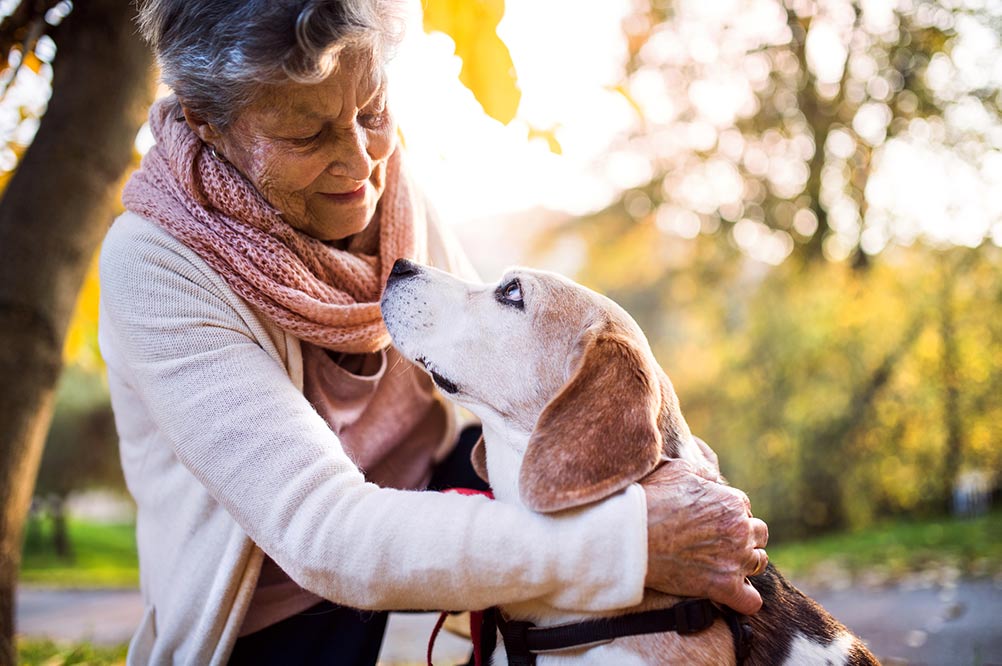
What Kind of Behavior Does a Dog Exhibit Before Death?
- August 8, 2021
- Planning
As a pet owner, our pets are precious companions who become like members of our family. The thought of a beloved pet dying is of course something you have probably tried to keep in the back of your mind for as long as possible because of how painful it is to think about it, much less imagine. It is never pleasant to think about how it’ll be when the time comes to say goodbye, so naturally, we all try to delay it as much as we can. Unfortunately, the eventual death of our beloved pets is an unavoidable fact of life.
Accepting death as an inevitable part of life can help you better cope when your pet’s time is near, and help you stay aware and alert about any changes in your pet’s behavior that may indicate they are reaching the end. This can help you prepare for the necessary arrangements to make for their goodbye, and ultimately, make the most of their final, precious days. Whether your dog’s passing is ultimately due to old age, or perhaps a terminal illness, we’d like to help you recognize the signs that your pet could be in the process of dying. This guide will help you distinguish certain normal changes in your dog’s behavior that they may exhibit from time to time from those that typically occur when a dog is nearing death. Continue reading as we explore and walk you through some of the difficult changes in your pet’s behavior before death.
Signs Your Dog May Be Ready to Say Goodbye
As you experience the emotional stress that comes from seeing a beloved pet in pain, recognizing the signs that your dog is dying will help you determine whether your pet is just going through a phase, is simply feeling under the weather, or is in the process of dying.

What to Do When Your Pet Passes Away at Home
- July 24, 2021
- Planning
Experiencing the loss of a pet is never easy. Few things compare to the level of hurt and pain that comes with it. These emotions can become even more overwhelming when you are faced with the sudden death of a pet at home and there is unfortunately no one around who is trained to handle the situation.
We understand this sort of situation is something no one can be prepared for; it is absolutely common to find ourselves paralyzed in fear, faced with a million questions running through our heads as we go through an event of this nature.
What should you do with your pet’s body? Who do you call? How long do you have until the body starts to decompose?

How to Know When to Put Your Cat Down
- July 9, 2021
- Celebrations of Life
Our beloved feline friends share our hearts and our homes, and become precious companions who are part of our families. When it is time to say goodbye to them, it can be extremely heartrending and unfortunately, nothing can prepare us for their departure.
As our cats age, their health can begin to degrade, and it can be tremendously emotionally challenging to watch them suffer or be in pain. Though it is never an easy decision, most cat owners agree that pet euthanasia can be a necessary means to end the suffering of a cat who is ill or frail from old age. Pet euthanasia, can be a final act of compassion to release our cats from their suffering in a hume and compassionate way.
When can you know it may be time to put your cat down? How can you know your pet’s quality of life has significantly declined to the point where it may be best to make this decision?
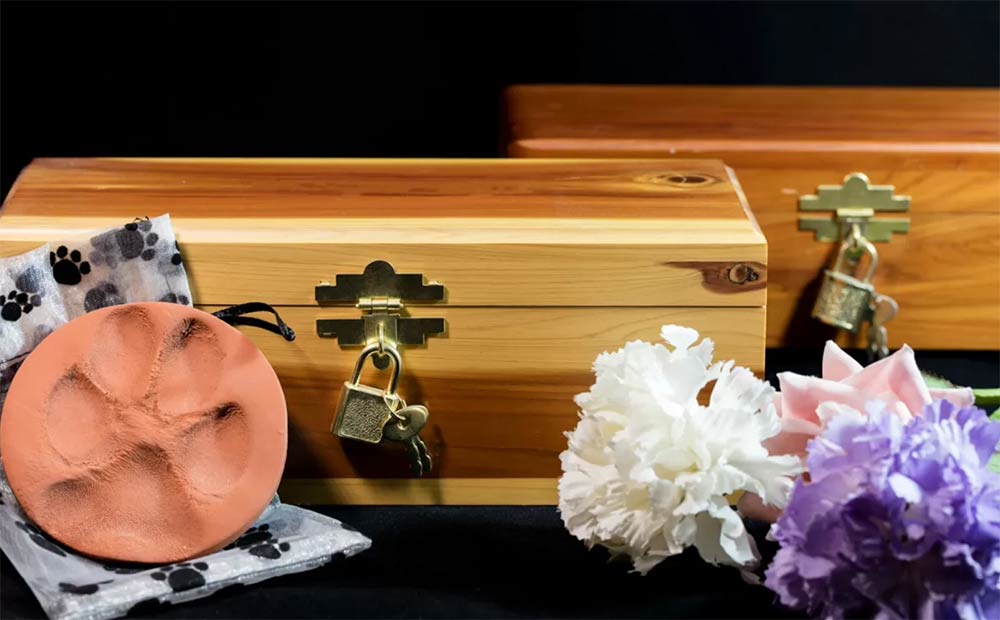
A Basic Guide to Pet Cremation
- June 21, 2021
- Planning
Losing a pet is an especially difficult experience for most people. Our cherished pets become part of our family, so when they pass we grieve their loss as we would for any loved one, and we also want the opportunity to give them a proper memorial.
Whether a dog, cat or other beloved animal has to be euthanized or passes away on their own, it can be stressful to decide what to do next. Therefore, it’s important to plan, just as we would for our own end-of-life and funeral wishes.
Many pet families opt to take care of arrangements in advance and find pet cremation to be the best option to remember their pet. From selecting the proper pet crematorium to choosing the type of cremation or a suitable memorial, we have put together a basic guide with everything you need to know about pet cremation services.

How to Cope with the Death of a Pet
- June 21, 2021
- Celebrations of Life
Coping with the loss of a pet is undeniably painful no matter how prepared you thought you would be. Even if we are fully aware and try to accept that our beloved pets will eventually pass, no amount of consolation or preparation will be enough when the day does finally arrive.
Often, the most challenging aspect of the grieving process can be due to the lack of emotional support we receive from loved ones. Grieving pet owners can often be expected to quickly bounce back to normal life and move on after the loss of a pet. This is unfortunately due to the common viewpoint that pets can be easily replaced, while losing a human loved one can be considered to be a greater loss, and therefore, more difficult to grieve as well.
However, losing a pet who was a beloved member of the family can feel like a tremendous loss. And while we can adopt a new pet to once again bring joy and love into our lives, a new pet can never replace the loss of another one. After all, there is nothing wrong with viewing the loss of your pet as that of the loss of a family member or a precious friend. In the end, a pet’s unconditional love and comfort they provided us with during their life is surely a reason to feel profound grief and sadness after their loss.
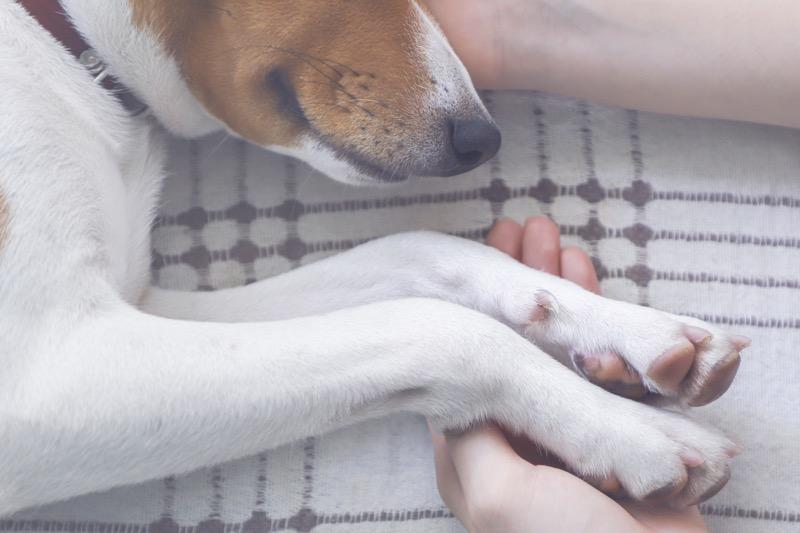
How to Know When to Put Your Dog Down
- June 21, 2021
- Planning
“A dog is man’s best friend” couldn’t be a more accurate saying. The special bond we form with our dogs makes them feel as if they essentially become a part of the family. Unfortunately, we also know the time will come when our beloved dogs will age and eventually leave us and with their passing, will leave a large vacancy in our hearts.
As our dogs grow older, their health may begin to decline and it can be incredibly emotionally difficult to watch them suffer. Most dog owners agree with the concept of pet euthanasia, seeing it as a blessing they can offer their canine who is ill or frail from old age as a humane way to end their suffering.
However, accepting that the time will come when your dog will one day pass away is one thing; knowing when to use euthanasia as a means of ending your dog’s suffering is another. While it is always emotionally challenging to choose to euthanize your dog, understanding the signs your dog is ready and planning accordingly may help make the process somewhat easier and a little less stressful.
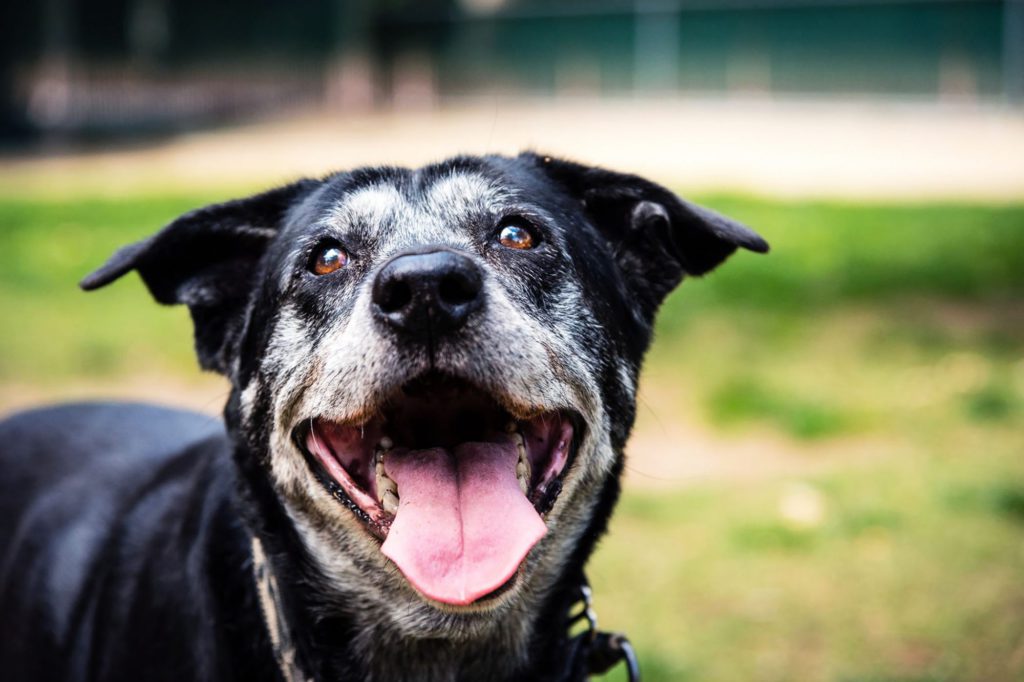
A Guide to Exercises for Older Dogs
- September 27, 2021
- Planning
As our beloved canine friends get older and the vibrant energy they used to showcase becomes but a beautiful memory of the past, our senior dogs can become at risk of developing life-threatening conditions and putting on an unhealthy amount of weight. It’s not unusual for older dogs to become sedentary and engage in very little to no movement throughout the day. Nevertheless, even if they lack the same energy they once did, they still require movement and physical activity to keep them healthy for as long as possible and prevent premature death.
Without any exercise or physical activity of some level, our senior dogs can easily lose muscle and bone strength and become progressively weaker. It’s not always easy to find the right ways to encourage your old pup to engage in some movement and burn some calories. They may not appreciate the idea of being bothered or forced to move around and even worse, you may be concerned about the possibility of the activity even hurting them. Understand, however, that a certain level of movement and activity is necessary to continue to foster the health and wellbeing of your senior dog and you must therefore, find the right exercises that will offer an effective level of mental and physical stimulation, while remaining safe. We have compiled this guide to offer you inspiration and ideas for fun and safe exercises, so you can rest assured your beloved older canine friend will stay out of harm’s way, while still helping to promote their physical strength and wellbeing.
Walking
Regardless of your dog’s age and physical limitations, doing some walking is usually necessary to promote a healthy weight and body shape. Walking typically requires minimal effort or body strength from our pets, while promoting an array of health benefits as well as serving as a form of entertainment for them. Walking is not only a form of mental and physical stimulation for your dog, it can also help support a strong and healthy cardiovascular and pulmonary system as well as lower blood pressure and increase stamina, amongst many other benefits.